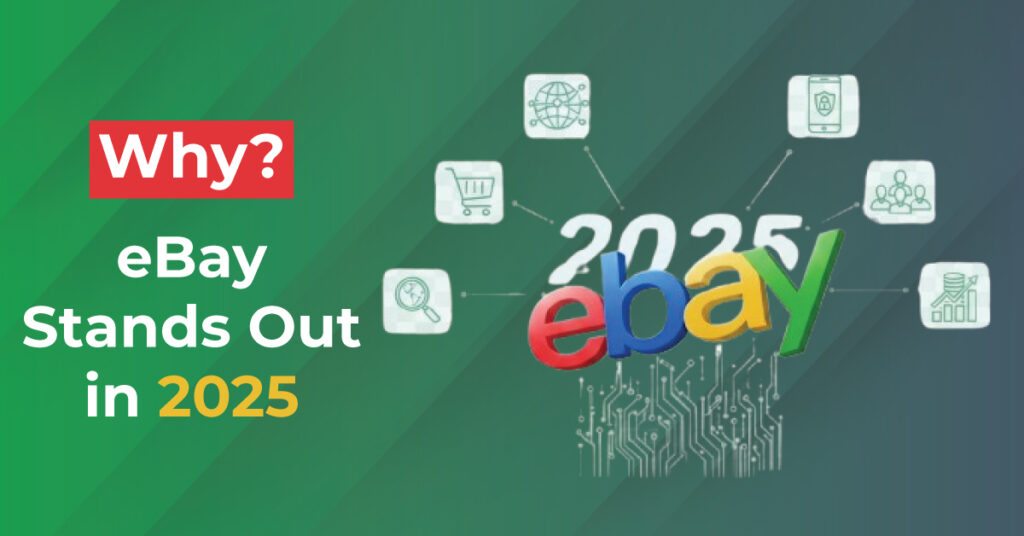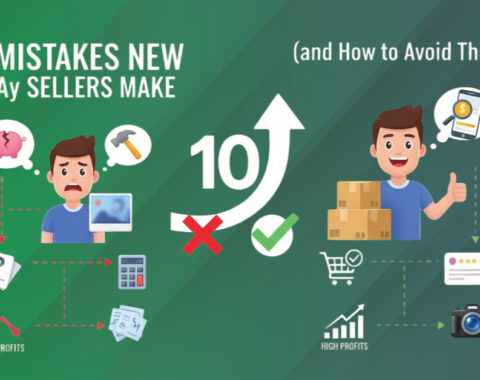
Introduction
When people hear the word eBay, they often think of an online auction site where buyers bid on used products. While that reputation helped make eBay famous in the late 1990s, the platform has since transformed into something far bigger. Today, in 2025, eBay is more than just a marketplace—it’s a global ecosystem that empowers entrepreneurs, fuels sustainability, and connects people across cultures.
Unlike other e-commerce platforms that focus purely on transactions, eBay has always prioritized community, trust and opportunity. From supporting small business owners with powerful tools to leading the way in the circular economy, eBay is shaping the future of online shopping in ways that go far beyond buying and selling.
In this article, we’ll explore the many reasons why eBay stands out as more than just a marketplace in 2025.
A Marketplace That Connects the World
One of eBay’s defining qualities is its global reach. With operations in over 190 markets, it allows sellers to reach customers in places they might never have imagined. For buyers, it opens the door to products that aren’t available locally, whether that’s a rare collectible from Japan, handmade crafts from Europe, or the latest gadgets from the U.S.
Unlike traditional retail platforms, eBay thrives on diversity of inventory. While large e-commerce giants focus on standardized products, eBay continues to provide access to:
One-of-a-kind items such as vintage vinyl records, antiques, or discontinued electronics.
New, brand-name products from trusted sellers and top-rated stores.
Refurbished and certified goods that balance affordability with quality assurance.
This unique blend makes eBay a marketplace like no other—a digital treasure hunt where both everyday essentials and rare finds are just a search away.
Empowering Entrepreneurs and Small Businesses
For entrepreneurs, eBay is much more than a sales channel—it’s often the first step toward building a business. The platform offers low barriers to entry, making it possible for anyone with internet access to start selling.
Low Startup Costs, High Potential
Unlike opening a physical store, which requires significant investment, selling on eBay allows individuals to start with minimal upfront costs. A seller might begin by listing unused items from their home, gradually learning the system before scaling up to a full-fledged business.
Real-World Success Stories
Thousands of sellers have turned their side hustles into six-figure businesses thanks to eBay’s reach. For example, entrepreneurs in rural areas who once had limited customer bases now serve international markets with ease. Similarly, niche sellers—such as those specializing in collectible sneakers or refurbished electronics—have built profitable enterprises by tapping into global demand.
Tools for Growth
eBay provides sellers with tools for inventory management, analytics, and advertising. Its Seller Hub dashboard gives detailed performance insights, helping sellers optimize pricing, track trends, and improve customer satisfaction.
This empowerment has made eBay a launchpad for entrepreneurs, particularly for those who might not have access to traditional retail opportunities.
Driving Sustainability Through the Circular Economy
In a world increasingly concerned about climate change and overconsumption, eBay plays a leading role in promoting sustainable shopping. Unlike platforms built around mass production and rapid consumption, eBay has long supported the circular economy—where products are reused, refurbished, and recycled.
Green Shopping in Action
Buying secondhand or refurbished items on eBay not only saves consumers money but also reduces environmental impact. According to eBay’s sustainability reports, millions of pre-owned items are given a second life each year, diverting significant waste from landfills.
Consumer Shift Toward Sustainability
Modern consumers, particularly younger generations, are more eco-conscious than ever. They prefer platforms that align with their values, and eBay fits this trend perfectly by enabling environmentally friendly shopping without sacrificing variety or affordability.
Through these practices, eBay has become a leader in sustainable e-commerce, proving that profitability and responsibility can go hand in hand.
Innovation for the Future of E-Commerce
Technology is reshaping how people shop, and eBay has consistently adopted innovations to improve the user experience.
Artificial Intelligence and eBay
AI powers eBay’s search and recommendation systems, helping buyers quickly find what they need. For sellers, these tools improve listing visibility and help match products with the right customers. Personalized recommendations also enhance customer satisfaction, increasing the likelihood of repeat purchases.
Why eBay Stands Out in 2025
With competitors like Amazon, Shopify, and Etsy dominating parts of the e-commerce world, why does eBay still stand out in 2025? The answer lies in its unique combination of features:
A diverse inventory that ranges from everyday products to rare collectibles.
A global reach that connects sellers and buyers across nearly every country.
A strong focus on sustainability that aligns with modern consumer values.
A support system for entrepreneurs that helps businesses grow with minimal barriers.
A community-driven approach that extends e-commerce beyond transactions.
This blend of commerce, innovation, and community ensures eBay’s continued relevance in an increasingly competitive market.
Conclusion
In 2025, eBay is not just an online marketplace—it is a global ecosystem that empowers entrepreneurs, supports sustainable shopping, and fosters meaningful connections between people.
Whether you are a buyer searching for unique treasures, an entrepreneur looking to scale your business, or a consumer committed to sustainability, eBay offers opportunities far beyond traditional e-commerce.
As technology evolves and consumer habits shift, eBay continues to innovate while staying true to its community-focused roots. That is why, even after nearly three decades, eBay remains more than just a marketplace—it is a platform that creates opportunities, drives impact, and shapes the future of digital commerce.




